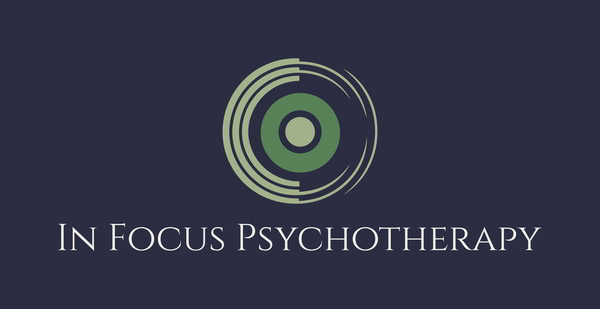Here are some of the most common concerns that we treat.
This list is not exhaustive. If you experience any of the following, know that you are not alone!
Adjustments
Changes are an inevitable part of life, but some can hit harder than others. Some of the many transitions we may go through can include (but are not limited to): selecting or changing jobs or careers; starting or graduating from college or a training program; moving to a new area; family or relationship changes, and many more. Navigating these uncharted waters can be tricky at best and can feel debilitating at worst. Methods for successfully coping with these adjustments include using CBT and ACT skills to work with or challenge negative self-talk and overcome perceived obstacles; skill and confidence-building to help manage real obstacles; and exploring values and other important parts of our identity to help commit to action.

Depression
Depression is a complex problem that can start from chronic stressors, acute stressors, or biological factors. If you are experiencing depression, it can be a confusing and psychologically painful place, because depression has powerful physical, emotional, cognitive, and behavioral components. It tends to wipe us out across the board, impacting all these factors at once. One of the hallmarks of depression is that even very bright people can’t simply “be positive” or “think their way out of it.” Hey – if they could, they wouldn’t be depressed!
The severity of depression can vary, often manifesting in painful Major Depressive Episodes which can be scary and debilitating. Depression is associated with suicidal thoughts, so if you think you are depressed, it is important to take steps to get mental health treatment. The good news is that there are evidence-based treatments that can be helpful, such as CBT, EFT, and ACT (just to name a few). Speaking less scientifically, it is important to find someone you trust to talk about your experience with depression.

Anxiety
Anxiety is a common uninvited guest in our thinking. It can strike at random times, or persist on a day-to-day basis, producing tension and worry that can disrupt our performance, sleep, concentration, and social lives. One thing that anxiety sufferers know all too well is that once we develop both physical and cognitive symptoms of anxiety, it can feel overwhelming. Our inborn fight or flight reflexes take over and refuse to shut down. Over time, it seems to cycle up, making it harder and harder to relax and enjoy our lives.
Anxiety goes by a few names clinically, most notably Generalized Anxiety Disorder, Specific Phobia and Panic Disorder. The only good thing to be said about anxiety is that anxiety disorders are most amenable to psychotherapy treatment. Like the schoolyard bully that evaporates when confronted – anxiety tends to remit quickly once a person gets a bit of mastery over one of the symptoms. Treatments that are effective against anxiety include CBT, Exposure Therapy, and Behavioral interventions. The most effective treatment is a tailored plan for you that works with your strengths and highlights the ways that you are already managing anxiety in your life.

Trauma
We live in a time when, thankfully, the experience of trauma sufferers gets more attention. Traumatic experiences leave powerful imprints in how we think and feel. Symptoms can persist for years – even decades. Trauma symptoms can be acute and highly debilitating shortly after a traumatic event and cause confusion, acute stress, and emotional distress. This is because a traumatic event is not processed by the brain in the same manner as our other experiences. The result is a fragmented, muddled, and chaotic recall of the events, often with gaps in our memory.
From there, symptoms can persist and interrupt our ability to make sense of the traumatic event, understand how we managed the traumatic event, and integrate the traumatic event into our future lives. Individuals can struggle for years with disruptive and heightened emotional responses to trauma triggers. Trauma treatment can help trauma sufferers re-process traumatic memories and gain control over triggers. Trauma-Focused CBT, EMDR, and exposure therapy help us build a foundation to fully understand our experience and integrate traumatic events into our future lives.

Couples/Marital Therapy
Effective long-term relationships must weather the stressors of work commitments, parenting, finances, and outside demands on each partner. In the mix of these stressors, partners might start to miss critical moments to re-affirm their admiration and friendship. Complicating the issue are misconceptions about what ‘makes’ a marriage or partner relationship work. Effective couples and marital therapy avoids tired misconceptions and focuses on effective strategies to help partners repair old wounds and recommit to their friendship and shared experiences. In doing so, they open the door to more romance and happiness in their relationship.

Adolescent/Young Adult Concerns
Advances in technology have accelerated change and increased complexity for today’s adolescents and young adults. Multiple channels of constant communication offer opportunities for connection with others – and increased social stress and complexity. Educational costs continue to increase, raising the stakes of finding the right career path in a job market that offers less long-term security. Adolescents and young adults face these challenges in a rapid progression with limited time to process experiences and master the coping skills required. What’s more, young people deal with the same challenges that older adults face, such as grief, trauma, mood concerns, and occupational stress, among others. We recognize the unique challenges that young people face and avoid the misconception that just because someone is younger, their problems aren’t significant. Our experience in university counseling settings has provided us the insight to understand these challenges and the clinical skills to help adolescents and young adults navigate them.

Dissociation
Dissociation is a process of disconnecting from one’s thoughts, feelings, memories, or sense of identity. When someone hears the term “dissociation,” they may think of Dissociative Identity Disorder, formerly known as Multiple Personality Disorder. However, dissociation expands far beyond this, and can be viewed along a spectrum. Nearly all of us experience at least some form of dissociation at some point, which may include daydreaming or “spacing out.” For some, this sense of disconnect goes beyond the standard daydream and expands to depersonalization/derealization, where it can feel like our surroundings are surreal or unreal, we feel detached from ourselves, or feel like we are “living in a dream.” Fortunately, there are ways to feel more reconnected and unified in our sense of identity and in the present moment. Mindfulness and grounding techniques, as well as methods of integrating parts of the self can help alleviate distress and empower you to feel more rooted in the present moment.






